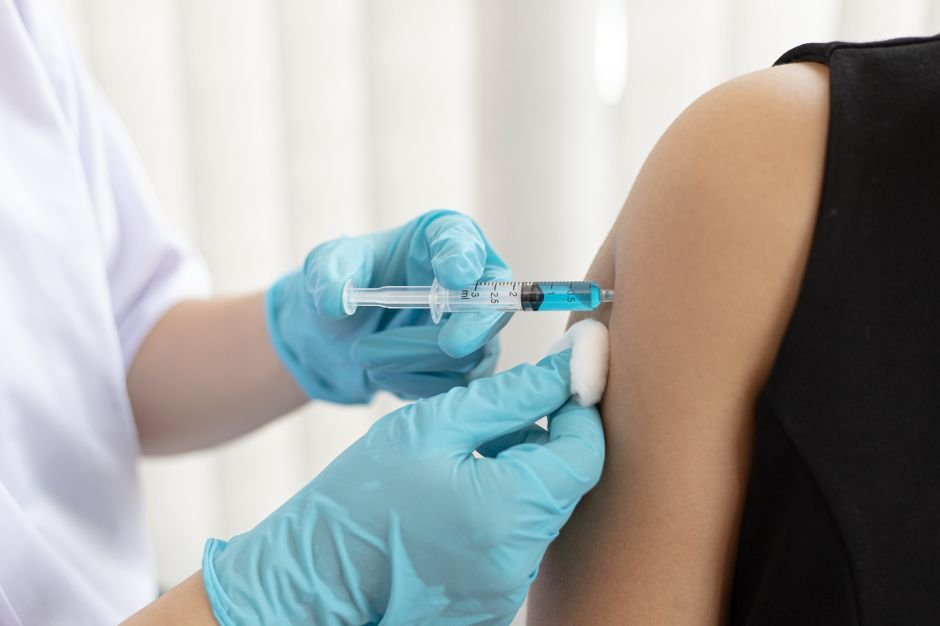Vitamin B12 plays a key role in your body’s energy production, red blood cell formation, and nervous system function. When your levels drop too low, your doctor might suggest B12 injections to boost your body’s stores quickly and effectively. If you’re preparing for your first B12 injection, you might feel unsure about what will happen at the appointment. Here’s what you can expect from the moment you walk in until after the injection.
If you are searching for vitamin B12 injections in Leicester, knowing what to expect during your first appointment can help ease any nerves and prepare you for the experience.
Key Takeaways
- You’ll likely receive the shot in your upper arm or buttock.
- The appointment takes about 10–20 minutes.
- Mild side effects like soreness or slight bruising are common.
- Your healthcare provider may ask questions about your symptoms and medical history.
- Regular injections may follow, depending on your needs.
Before the Appointment
1. Health Assessment
When you arrive at the clinic, the nurse or healthcare provider will typically begin by reviewing your medical history. They might ask about your current symptoms, medications, dietary habits, and any past reactions to injections. This helps them determine the right dosage and frequency for you.
If this is your first time receiving B12 injections, your provider may also review the results of recent blood work. These lab results often measure your B12 levels, as well as folate and homocysteine levels. If you haven’t had recent tests, the provider might schedule them before starting the injection schedule.
2. Explanation of the Procedure
Once they gather your health information, the nurse or doctor will explain how the injection works. They’ll let you know where the shot will go and what it’s intended to do. This is a good time to ask any questions you have about the shot, possible side effects, or what to expect afterward.
Some providers use hydroxocobalamin, while others use cyanocobalamin. Both forms of B12 are effective, though they differ slightly in how long they stay in the body.
During the Appointment
1. Injection Site Preparation
The provider will choose an injection site—most commonly the deltoid muscle in the upper arm. In some cases, especially if higher doses are needed, the gluteal muscle in the buttock may be used. They’ll clean the area with an alcohol swab to prevent infection.
2. The Injection
The actual injection lasts just a few seconds. The needle is fine, and most people describe the sensation as a quick pinch or mild sting. Any discomfort usually fades within minutes. If you’re anxious about needles, let the nurse know—they might help by distracting you or using relaxation techniques.
3. Immediate Monitoring
After the shot, you’ll stay for a few minutes to ensure you don’t have a rare reaction, like dizziness or skin irritation. Most people walk out feeling fine and go about their day as usual.
After the Appointment
1. Common Reactions
After the injection, you might notice mild swelling or soreness at the site. This usually goes away within a day or two. Some people feel a burst of energy within hours, while others may notice a gradual change over several days.
Other mild effects may include:
- A feeling of warmth or redness around the injection site
- Slight fatigue (ironically)
- Mild headache
These effects tend to be short-lived and don’t usually require treatment.
2. When to Call the Clinic
Serious side effects are rare, but you should contact your provider if you notice:
- Shortness of breath
- Hives or rash
- Swelling in the face or throat
- Chest pain
- Severe dizziness
Though uncommon, these symptoms could signal an allergic reaction and require immediate medical attention.
3. Ongoing Treatment Plan
One injection isn’t always enough to correct a deficiency. Depending on your levels, your provider might suggest a loading phase with more frequent shots over a few weeks, followed by maintenance doses every 1–3 months.
If your deficiency stems from a chronic issue like pernicious anemia or digestive disorders (e.g., Crohn’s disease), you may need lifelong treatment.
Tips for Your First Time
1. Wear short sleeves or loose clothing
This makes it easier for the nurse to access your upper arm quickly and reduces stress during the process.
2. Eat beforehand
You don’t need to fast, so having a light meal can help prevent any lightheadedness.
3. Stay hydrated
Being well-hydrated can help your muscles absorb the shot better and may reduce soreness.
4. Bring your questions
If you’re unsure about how often you’ll need injections, possible side effects, or how it might interact with medications, ask your provider during the visit.
5. Keep track of how you feel
Write down any changes you notice in your energy, mood, or other symptoms in the days after the shot. This can help your doctor assess how well the treatment is working.
What You Might Notice After the Shot
The benefits of B12 injections vary from person to person. Some people notice a fast improvement in energy, mood, or focus. Others may take longer, especially if the deficiency was moderate rather than severe.
Improvements you may notice include:
- Less fatigue
- Better concentration
- Fewer headaches
- Improved mood
- Reduced tingling in hands or feet (if related to B12 deficiency)
If you don’t notice any difference after a few weeks, follow up with your provider. You may need to adjust the dose or frequency.
How Long Will You Need B12 Injections?
This depends on the reason for your deficiency.
- If your B12 levels dropped due to a temporary issue, like a short-term dietary change or illness, a few injections might be enough.
- If you have a condition that prevents proper absorption—such as gastric bypass surgery, atrophic gastritis, or pernicious anemia—you may need injections for life.
Clinics offering vitamin B12 injections in Leicester, such as Synergy Pharmacy, can provide long-term treatment plans and regular reviews to keep your levels where they need to be.
Your provider will schedule follow-up appointments and periodic blood tests to monitor your B12 levels.
If you’ve been prescribed B12 injections, don’t worry—the process is fast, usually painless, and can make a big difference in how you feel. Your first appointment will likely be quick, and your healthcare provider will guide you through the steps clearly. If you keep up with follow-up visits and stay in touch with your doctor, you’ll be in a good position to manage your B12 levels effectively.
FAQs
1. How often will I need B12 injections?
In the beginning, injections may be given multiple times a week. After levels stabilize, most people shift to monthly or quarterly shots.
2. Will the injection hurt?
Most people describe the shot as a brief sting or pinch. Soreness afterward is mild and usually goes away within a day.
3. Can I go back to work or drive afterward?
Yes. There’s no recovery time needed. You can resume normal activities immediately unless you experience unusual side effects.
4. Are there any foods I should avoid after the injection?
No special diet changes are required after the shot. However, keeping a balanced diet with enough iron and folate can support your recovery.
5. Can I take B12 pills instead of injections?
This depends on the cause of your deficiency. If your body has trouble absorbing B12 through the digestive tract, injections work better than pills.
Related Reads
- Massage Therapy The Woodlands, TX: Evidence-Based Benefits You Should Know
- Key Strategies Used by a Denver Assault Defense Lawyer to Protect Your Rights
- Top Benefits of a Whole Home AV System for Modern Living
- 7 Things to Know Before You Call a Tow Truck in Roseville
- Pistachios and Fildena 100: The Trending ED Fix for Men in 2025







